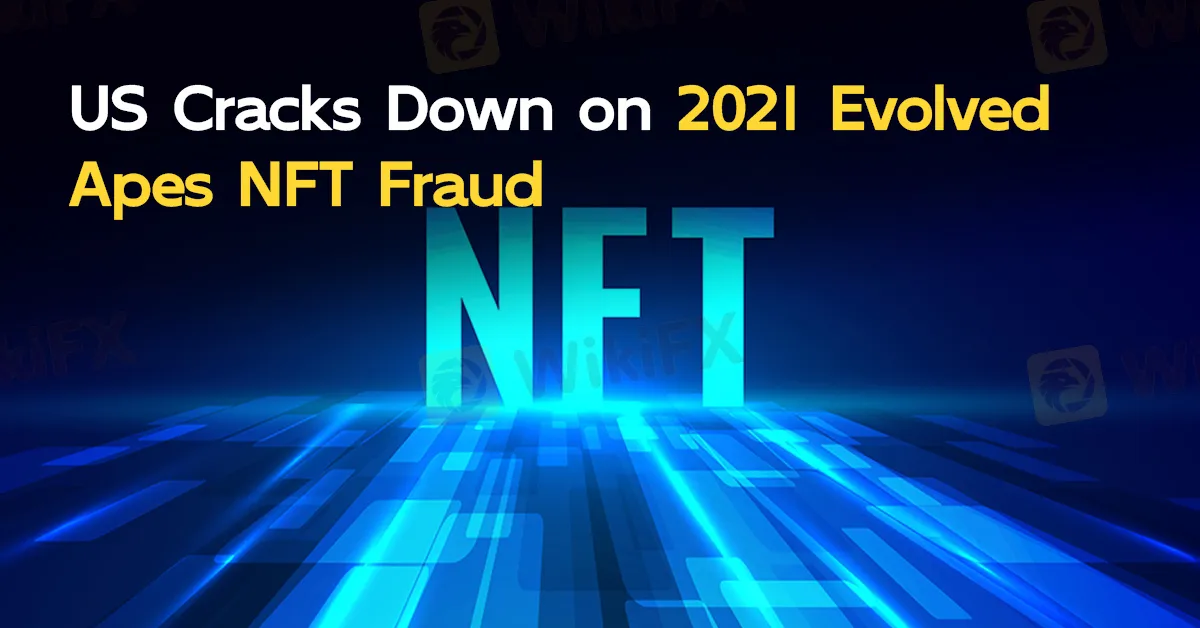简体中文
繁體中文
English
Pусский
日本語
ภาษาไทย
Tiếng Việt
Bahasa Indonesia
Español
हिन्दी
Filippiiniläinen
Français
Deutsch
Português
Türkçe
한국어
العربية
US Cracks Down on 2021 Evolved Apes NFT Fraud
Abstract:The United States Attorney's Office for the Southern District of New York announced today that three individuals have been charged in connection with a non-fungible token (NFT) rugpull from 2021, known as Evolved Apes.

The United States Attorney's Office for the Southern District of New York announced today that three individuals have been charged in connection with a non-fungible token (NFT) rugpull from 2021, known as Evolved Apes.
According to a release from the SDNY's office, Mohamed-Amin Atcha, Mohamed Rilaz Waleedh, and Daood Hassan face charges of wire fraud and money laundering.
Evolved Apes was a collection of 10,000 unique NFTs, promising a video game that never materialized. The anonymous developer, Evil Ape, vanished a week after the project‘s launch, siphoning 798 Ether (equivalent to $3 million today, or $2.7 million at the time) from the project’s funds.
U.S. Attorney Damian Williams indicated that the defendants orchestrated a scheme to inflate the price of digital artwork through false promises about developing a video game. They allegedly took investor funds, never developed the game, and pocketed the proceeds. He emphasized that despite the novelty of digital art, making false promises for money remains illegal.

In the cryptocurrency world, this type of scheme is referred to as a rug pull. It involves developers raising funds from investors through the sale of tokens or NFTs, then abruptly shutting down the project and disappearing with the money.
Digital assets, including cryptocurrencies and NFTs, are particularly susceptible to investment frauds and scams due to their decentralized nature, lack of regulatory oversight, and the anonymity they offer. These factors create an environment where fraudulent actors can operate with relative impunity, exploiting the novelty and complexity of digital assets to mislead investors. Additionally, the rapid growth and high volatility of the market attract both inexperienced investors and malicious entities, making it easier for scams like rug pulls to thrive. The technological sophistication required to understand and navigate this space also leaves many investors vulnerable to deceptive schemes.
According to De.Fi's Rekt database, more than $14.5 billion has been lost to rug pulls since 2011.
The largest rug pull to date involved the South African digital assets investment fund, Africrypt, which absconded with 69,000 bitcoins in 2021, worth nearly $4.8 billion at the time.

Disclaimer:
The views in this article only represent the author's personal views, and do not constitute investment advice on this platform. This platform does not guarantee the accuracy, completeness and timeliness of the information in the article, and will not be liable for any loss caused by the use of or reliance on the information in the article.
Read more

Anti-Scam Groups Urge Tougher Action on Fraudsters in UK
Anti-scam groups demand tougher police action on fraudsters as UK fraud rates surge 19%, targeting millions in a penalty-free crime spree exposed by a $35m scam leak.

Philippines Deports 29 Indonesians Linked to Online Scam Syndicate in Manila
Online scam groups in the Philippines trick Filipinos into gambling and love scams, from Manila to Bacolod, causing trafficking and pain as police fight back.

FCA Warns Against 10 Unlicensed or Clone Firms
Unlicensed and clone firms pose risks; FCA urges investors to verify authorization.

CySEC Warns Against 14 Unlicensed Investment Websites
CySEC urges caution as 14 websites lack proper authorization.
WikiFX Broker
Latest News
How Crypto Trading Transforms FX and CFD Brokerage Industry
FCA Warns Against 10 Unlicensed or Clone Firms
CySEC Warns Against 14 Unlicensed Investment Websites
Top Currency Pairs to Watch for Profit This Week - March 31, 2025
Will natural disasters have an impact on the forex market?
Philippines Deports 29 Indonesians Linked to Online Scam Syndicate in Manila
Exposed: Deceptive World of Fake Trading Gurus – Don’t Get Fooled!
AI-Powered Strategies to Improve Profits in Forex Trading
Stock Market Trading Volume Drops by 97.58 Billion Naira This Month
Why does your mood hinder you from getting the maximum return from an investment?
Currency Calculator







